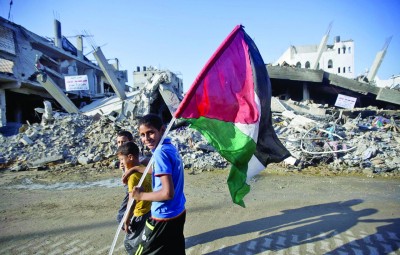Gaza Lives: Abdelrahman’s story

Voices from Gaza
The 1.8 million Palestinians who live in Gaza are losing hope. This coastal strip that they call home has been under siege for the last ten years – a decade of Israel controlling everything that comes in and out, stopping people and supplies moving freely, a decade of military incursions with Palestinians having nowhere to run.
The last major assault by Israeli forces was in 2014, when 51 days of Israeli bombardment killed more than 2,200 Palestinians. Since then, almost nothing has been reconstructed, most of the 100,000 people made homeless in the assault still displaced. Israel simply will not allow in the materials people need to re-build their homes.
#GazaLives tells the stories of Palestinians from Gaza, in their own words. Throughout the summer, we will be releasing these testimonies to mark the 2nd anniversary of this last military bombardment to remind us all that the suffering in Gaza has not ended.
The first four below are about Shuja’iyya, the district in Gaza that suffered the worst massacre of the assault. More stories will be released throughout July and August.
Gaza Lives: Abdelrahman’s story
Marking two years since the brutal Israeli assault that killed more than 2,200 Palestinians, #GazaLives tells the stories of Palestinians living there, in their own words.
On 20th July 2014, as many as 150 Palestinians were killed in Shuja’iyya after Israeli forces devastated the area.
My name is Abdelrahman.
On the 22nd night of Ramadan this year, I was sitting in a Gaza neighborhood that was completely in the dark because of power shortages.
As I listened to music on my phone, I recalled the years gone by, one after the other. I remembered what happened in Ramadan in each one of those years.
Those memories added a touch of beauty to the past and hope for the future.
That was until I got to that Ramadan of bitter memories, the toughest Ramadan of all, Ramadan of 2014. That was a sad month when the Musaher (the man who wakes people up to take their pre-dawn fasting meal) was silenced as the minarets bowed in mourning.
There was no electricity at all. The scene was only noises of bombs and missiles with blood flooding on the lands of the Gaza Strip.
I remembered the hardest day in our life, the 22nd day of Ramadan, 20th July 2014.
It was one of the worst days of the war on the Gaza Strip; it was this assault during which the Israeli occupation committed a ferocious massacre against unarmed civilians in Shuja’iyya neigborhood.
In this single night, at least 74 people were killed, 250 were injured.
It was one of those violent nights in the Gaza Strip with arbitrary shelling targeting children and seniors, killing entire families, wiped out without a trace.
I sat remembering the massacres committed against Palestinian families.
As that sad memory filled the room, I became overcome and left, to wander around Shuja’iyya neighborhood, to see what, if anything had been reconstructed since Israel’s assault.
Very soon, I saw the wreckage of the house of Skafi family.

Israeli forces committed a massacre against this family that broke my heart and caused an outpouring of tears of grief.
I continued my walk until I was 100m from the demolished house, where I saw some of the survivors of the family sitting to commemorate the death of their relatives.
They accepted condolences from the people gathered there and with great sadness, sang to honour the dead. I wanted to find out the rest of the story.
I met Omar Skafi, who told me what had happened. I was lost in imagining the scene of this massacre, shifting between my own memories and Omar’s description of this crime.
Omar Skafi began his story by describing his family: his father, mother and twelve other male and female members. Then he began to talk about the massacre.
He said, at that time, the shelling was arbitrary and overwhelming. It comprised all military means and weapons, with artillery, planes and internationally-banned bombs.
Omar explained, “We fled to a nearby house. In that house gathered 150 members of the family. There were women, children, men and young people. We don’t know exactly what caused the explosion. It was followed by the shattering of stones, glass, doors, and windows and accompanied with thick black smoke. We didn’t recover until a few minutes had passed”.
Omar, who had narrowly escaped death himself, added, “After the smoke and dust faded, we found huge holes in the walls of the house. A few minutes after we left the house, we realized the massacre committed against our family.”
“The situation,” he said, “was devastating. We could not control it. We stood for minutes looking at each other in this painful horrendous scene. Then, we found the martyrs under the rubble. We looked for the twins, Anas and Saad, but could not find them for three days. When we eventually found them their bodies had begun to decay.”
With heavy sadness, he recited the names of the nine people lost to this butchery.
His father, Akram Skafi, was 63 years old. Omar’s brothers, Abderrahman Skafi, 22, and the twins, Anas and Saad, 18. His cousins, Mohammad and Ali Skafi and their cousins, Musaab Skafi, Isam Skafi and Marwan Skafi.
This is my story, this is our story, the story of the devastation we face, the story we cannot forget.
If I can ask for something, I will ask for one thing, a homeland where peace prevails.
A homeland where we can live like the other people of this world.
This is my question. When will I have my answer?

